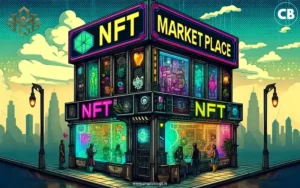
Close

Polygon, formerly known as Matic Network, is a layer-2 scaling solution for Ethereum that offers faster and cheaper transactions. It has become a popular platform for minting, buying, and selling non-fungible tokens (NFTs) due to its scalability and low transaction fees. NFTs on Polygon are increasingly attracting artists, gamers, and investors looking to capitalize on the booming NFT market without incurring high costs.
To start buying and selling NFTs on Polygon, users need a compatible cryptocurrency wallet, such as MetaMask. After installing MetaMask, users must connect it to the Polygon network by customizing the network settings. This involves adding the network name, RPC URL, and chain ID for Polygon. Once connected, users can bridge Ethereum assets to Polygon using services like the Polygon Bridge.

Purchasing NFTs on Polygon involves browsing NFT marketplaces that support the Polygon network, such as OpenSea or Rarible. Users can explore various collections, filter by category or price, and select the desired NFT. To buy an NFT, users must have sufficient MATIC tokens in their wallet to cover the purchase price and transaction fees. The transaction is confirmed through the wallet, and the NFT is transferred to the buyer’s wallet upon completion.
To sell NFTs on Polygon, users must list their NFTs on a marketplace. This process involves connecting the wallet to the marketplace, selecting the NFT to sell, setting the price, and creating a listing. Sellers can choose between fixed-price listings or auctions, depending on their strategy. Once a buyer purchases the NFT, the transaction is processed, and the seller receives the payment in MATIC tokens.
Polygon offers significant advantages for NFT trading, including lower transaction costs and faster processing times compared to Ethereum. However, users should be aware of potential risks such as market volatility and the need for secure wallet practices. Staying informed about platform updates and marketplace trends can help users make informed decisions and maximize their NFT trading experience.